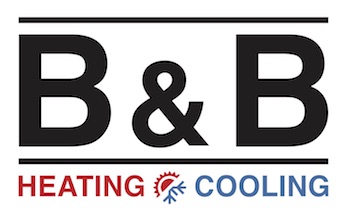Buying your first home is thrilling. You’re likely juggling a dozen things or more to ensure you’re making the right choice. We believe that understanding your future HVAC system is essential. The property’s HVAC system represents a significant investment and source of potential long-term costs, so being thorough is important for first-time homebuyers.
In the following guide, we’ll outline seven tips for learning everything you can about a home’s heating and cooling system. And if you want a more in-depth opinion from the experts, don’t hesitate to contact B & B Heating & Cooling. Our seasoned technicians can weigh in on your options with industry insights you won’t find elsewhere.
1. Which Kind of HVAC System Does the Home Use?
Start by identifying what type of HVAC system the home features. Furnaces generally last longer compared to air conditioners, and newer types of HVAC equipment like heat pumps feature average life spans that are impressively long. Tracking down the make and specific model provides a much better sense of how much it might cost in upkeep over time.
2. How Old Is the Current HVAC System?
It also helps to learn how old the HVAC system is when you’re looking at a new home. For the most part, HVAC systems should survive for around 10-12 years. Having the knowledge of when it was installed helps you plan for possible repair needs or when it might break down. Older systems are at a higher risk of problems, so budgeting for a replacement unit might be needed faster than expected.
3. What Does the Warranty Cover?
Don’t forget to look into whether the HVAC system is covered by a warranty. If it is, this can lower maintenance costs. HVAC warranties often cover parts and labor, but it’s important to note that details will vary. Make sure you go over any terms that aren’t familiar to make sure you fully understand your coverage and the likelihood of out-of-pocket costs.
4. Has the System Ever Been Professionally Serviced or Maintained?
Next, examine the maintenance history of the HVAC system, if such information is accessible. This kind of information can demonstrate if the repair needs are high or how often a tune-up was scheduled. You should at least try to track down a history of key tasks such as changing the air filter, which means it enjoyed more regularly scheduled tune-ups.
5. What Are the Energy Efficiency Ratings?
Selecting a system with great energy efficiency means more manageable utility bills and a smaller environmental impact. Look for the seasonal energy efficiency ratio (SEER) ratings for air conditioning as well as the annual fuel utilization efficiency (AFUE) for furnaces. The higher the SEER rating, the more efficient the cooling over the whole season, while strong AFUE ratings mean the fuel is efficiently converted into useable heat.
6. Can You Spot Trouble After Completing an Informal Inspection?
Even if you don’t have heating and cooling expertise, you can still take a moment to inspect the HVAC system yourself. Look for any concerning items that haven’t been mentioned by the seller. This might consist of odd sounds, spots with uneven heating or cooling and attempts to cover up any obvious damage.
7. Have You Sought Out Expert Advice?
If you’re still hesitant to make an offer because of the condition of the HVAC system, it’s never a bad idea to get an assessment and recommendation from certified HVAC technicians. They can spot things you might not, including leaking coolant, damage to the wiring or flawed ductwork.
A Consultation with B & B Heating & Cooling Simplifies Your Home-Buying Journey
Choosing your first home is meant to be a joyful event, and B & B Heating & Cooling wants to ensure it stays that way. Get in touch with us at 314-325-7552. We can discuss how our HVAC services help make this process smoother, giving you what you need to step into your new home with confidence.
